Public broadcasting involves radio, television, and other electronic media outlets whose primary mission is public service. Public broadcasters receive funding from diverse sources including license fees, individual contributions, public financing, and commercial financing, and avoid political interference or commercial influence.
Television broadcasts in the United Kingdom began in 1932, however, regular broadcasts would only begin four years later. Television began as a public service which was free of advertising, which followed the first demonstration of a transmitted moving image in 1926. Currently, the United Kingdom has a collection of free-to-air, free-to-view and subscription services over a variety of distribution media, through which there are over 480 channels for consumers as well as on-demand content. There are six main channel owners who are responsible for most material viewed.
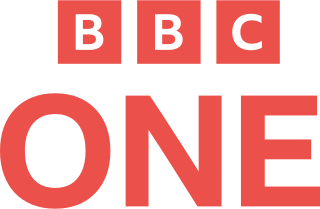
BBC One is a British free-to-air public broadcast television channel owned and operated by the BBC. It is the corporation's oldest and flagship channel, and is known for broadcasting mainstream programming, which includes BBC News television bulletins, primetime drama and entertainment, and live BBC Sport events.
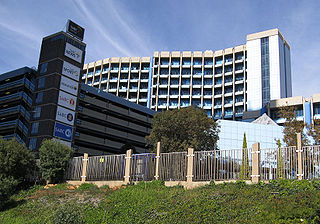
The South African Broadcasting Corporation (SABC) is the public broadcaster in South Africa, and provides 19 radio stations (AM/FM) as well as six television broadcasts to the general public. It is one of the largest of South Africa's state-owned enterprises.

The British Forces Broadcasting Service (BFBS) provides radio and television programmes for His Majesty's Armed Forces, and their dependents worldwide. Editorial control is independent of the Ministry of Defence and the armed forces themselves. It was established by the British War Office in 1943. In 1944, it was managed by Gale Pedrick.
The Radio-télévision belge de la Communauté française, shortened to RTBF, is a public service broadcaster delivering radio and television services to the French-speaking Community of Belgium, in Wallonia and Brussels. Its counterpart in the Flemish Community is the Dutch-language VRT, and in the German-speaking Community it is BRF.
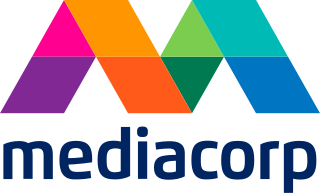
Mediacorp Pte. Ltd. is the state-owned public media conglomerate of Singapore. Owned by Temasek Holdings—the investment arm of the Government of Singapore—it owns and operates television channels, radio, and digital media properties. It is headquartered at the Mediapolis development in Queenstown's One-north precinct, which succeeded Caldecott Hill—the long-time home of its predecessors—in 2015; as of 2022, Mediacorp employs over 3,000 employees; a large number of them are in both public and private sector broadcasting.

RTM TV1 is a Malaysian free-to-air public television channel owned and operated by Radio Televisyen Malaysia, a broadcasting department of the Malaysian Government. Launched on 28 December 1963, TV1 is the first and oldest TV station in Malaysia. The channel features mostly news, talk shows and documentaries and some in-house, local and international kids, drama and sports programming.

Channel 5 is an English-language free-to-air terrestrial television channel in Singapore, owned by state media conglomerate Mediacorp. The channel primarily airs general entertainment and news programming in the English language.

Channel 8 is a Singaporean Mandarin-language free-to-air terrestrial television channel in Singapore, owned by state media conglomerate Mediacorp. The channel broadcasts general entertainment and news programming in the Mandarin language, including original and imported programming.
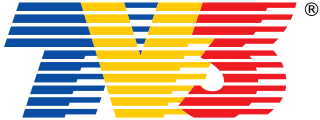
Sistem Televisyen Malaysia Berhad, operating as TV3, is a Malaysian free-to-air television channel owned by Malaysian media conglomerate, Media Prima. TV3 is the third oldest TV station in Malaysia. It was launched on 1 June 1984 as the country's first and oldest private television channel. As of October 2021, TV3 remains to be the most-watched television station in Malaysia with about 17% of its viewing share among other Malaysian television stations, followed by TV9 with 15% of its viewing share, making two of them become the second most-watched television station in the country, despite the declining viewership of 3 free-to-air television channels.

Radio Televisyen Malaysia, also known as the Department of Broadcasting, Malaysia is the national public broadcaster of Malaysia, headquartered at Angkasapuri, Kuala Lumpur. Established on 1 April 1946 as Radio Malaya, it is the first and the oldest broadcaster in the country.
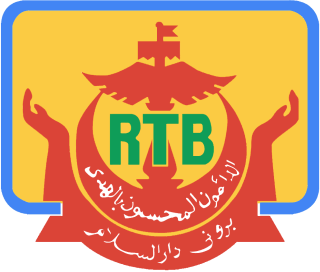
Radio Television Brunei is the national public broadcaster of Brunei, headquartered at the Secretariat Building, Bandar Seri Begawan. Radio Brunei made its first broadcast on 2 May 1957, with a television service starting on 1 March 1975. Modelled after Radio Televisyen Malaysia (RTM), which is a government department, RTB came into its current state with its present name in 1975 after the merger of its radio and television services.
Central was a Singaporean free-to-air terrestrial television channel in Singapore, owned by state media conglomerate MediaCorp.
Suria is a Malay-language free-to-air terrestrial television channel in Singapore, owned by state media conglomerate Mediacorp. The channel broadcasts general entertainment and news programming in the Malay language, including original programming, and imported programmes from Malaysia and Indonesia.

Tipik is a Belgian national television channel, owned and operated by the French-language public-service broadcasting organization RTBF.

RTB Perdana is the oldest free-to-air terrestrial television channel in Brunei. The channel officially began broadcasting on 1 March 1975.

RTM TV2 is a Malaysian free-to-air public television channel owned and operated by the Radio Televisyen Malaysia, a broadcasting department of the Malaysian Government. Launched on 17 November 1969, TV2 is the second and second oldest TV station in Malaysia. The channel features mostly English, Mandarin and Tamil news and talk shows, the latter two languages were mainly produced for the dominant minority Chinese and Indian communities, whilst the English news functions for the nation's multiracial population whose dominant lingua franca or first language is the latter. It also offers some in-house, local and international entertainment programs, including reality shows, films and dramas as well as sports programming.
Singapore International Television (SITV) was a Singaporean satellite television channel operated by the Singapore International Foundation. Broadcasting an hour a day with the aim of catering the Singaporean diaspora across Asia, the line-up was offered by SBC and its successor entities.













